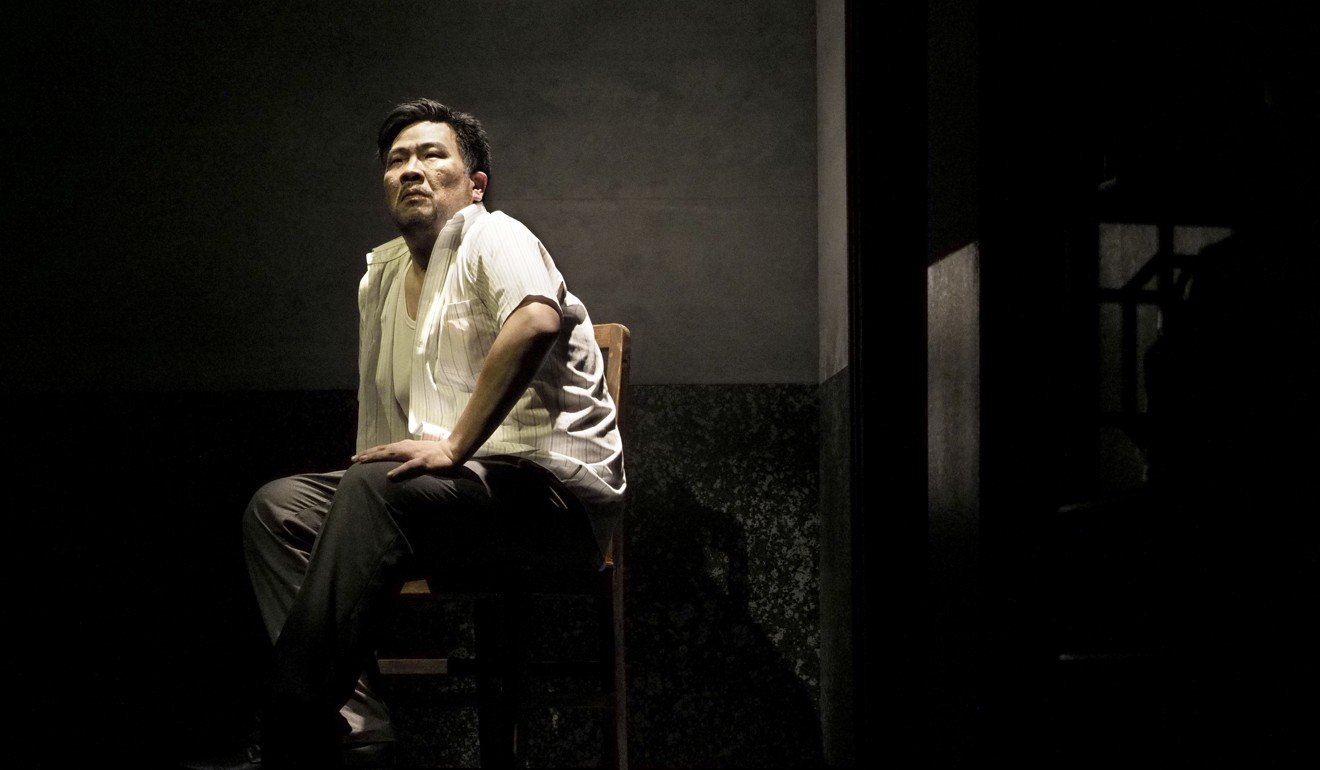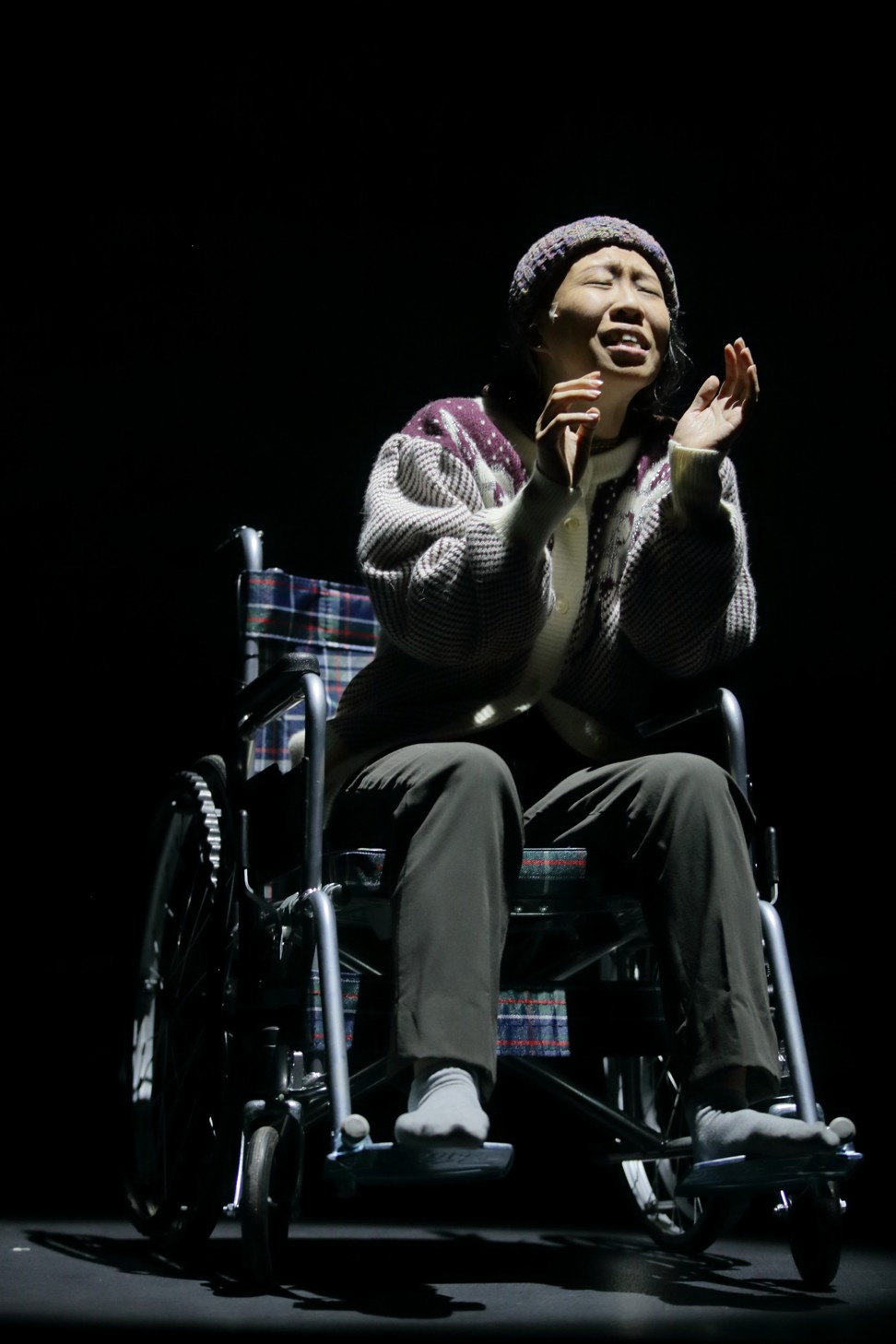
Tiananmen Square crackdown of June 4, 1989 revisited in Candace Chong’s play, ‘May 35’
- May 35 is the story of a woman who wants to hold a vigil for her son, killed by PLA troops in Tiananmen Square during the student-led protest in 1989
- Instead of focusing on the incident, Chong’s play concentrates on the families of the victims, whose suffering continues
For acclaimed playwright Candace Chong Mui-ngam, the June 4, 1989 crackdown on pro-democracy protesters in Beijing’s Tiananmen Square is a subject an artist must tackle “at least once in their lifetime”.
She may have been only 12 years old when People’s Liberation Army soldiers opened fire on the student protesters, but the incident left a strong imprint on her mind. Throughout her career, the subject would pop into her head every now and then.,
A breakthrough came when she had her first child, who is now nine years old. “It was no longer plain facts. I could see it from another perspective and relate to it,” she says.
But she didn’t find her connection with the subject until two years ago, when her parents fell sick and she and her brother took turns caring for them. “What about the Tiananmen mothers?” asks Chong, referring to the families of protesters killed in the crackdown, to whom she later spoke to as part of her research. “There is no one to care for them. They are restricted and monitored, and cannot even sweep the graves of the dead.”

Reading books that featured interviews with these families fuelled her anger about the issue, which became her motivation in the creative process. “It described their lives and what they went through, and really brought every victim alive. That is how you know these people are not just a number. They are people who were once alive. So how much agony have [the families] swallowed?”
Over a period of nearly 12 months, she wrote a play about an elderly couple; the woman hopes to fulfil her dying wish of holding a vigil for their son, one of the protesters killed in the incident.

Hardly a disciplined writer, Chong was still frantically typing away on the morning of the play’s first reading, and completed it only an hour before deadline. A five-time winner of the best script award at the Hong Kong Drama Awards, Chong says this subject is very different from her other plays, such as My Very Short Marriage. “It’s based on real people, whose problems are still not resolved and are still suffering.”
Called the May 35, a term used by Chinese internet users to get around censorship of posts about the June 4 incident, the play also explores the impact and repercussions of the incident 30 years later. Families are kept under close surveillance and activists detained each year ahead of the anniversary of the crackdown. Any online references to it are censored. No one dares touch upon the subject and few young people in China know what happened in the summer of 1989.
“I could not accept that the whole incident was just dismissed [by the authorities]. Although they are grieving, [the families of those killed] are not allowed to express it, and have their privacy invaded. How they are stripped of their human rights infuriates me,” says Chong. “If that happened to me or people I know, I would explode.”

“You have the freedom to explode. They don’t,” adds Lee Chun-chow, director of the play.
Fortunately, the staging of the play has been surprisingly smooth – Chong even received calls from friends offering their help – but this is an exception to the norm. Under China’s tightening grip, the June 4 incident is becoming an increasingly sensitive subject in Hong Kong as well.
“I thought in schools, teachers would definitely explain what happened when teaching Chinese history. But fewer and fewer do. The way the incident is being intentionally erased from our memories is very alarming,” says Lee.

Stage 64, the NGO that commissioned the play, has staged dramas in Hong Kong schools for the past nine years, using theatre to educate young people about contemporary Chinese history. The most recent one was about the late Nobel Peace Prize-winning political dissident Liu Xiaobo and his wife, Liu Xia.
However, since the Occupy Central street protests for democracy in Hong Kong in 2014, fewer schools have allowed them to perform. “Schools are increasingly reluctant to touch on politics. Some required us to submit the script in advance. One teacher asked if we would criticise the Communist Party of China,” says producer Lit Ming-wai, who admits it is becoming difficult for Stage 64 to continue.
A consequence of this is that the June 4 incident feels increasingly remote and distant to young people, something Lee also observes in the cast of May 35. “They are in their 30s, so there is a certain distance between them and the event. They have to try really hard, using their imagination, to put themselves in the shoes of their characters and to understand their circumstances,” says Lee.

Chong only includes so much information in her play, but she hopes it can move audiences and trigger the curiosity of younger viewers, impelling them to find out what happened. “A lot of people identify themselves as Hongkongers and not Chinese, and feel this has nothing to do with them. But even so, you have to accept the fact that politics in Hong Kong is heavily influenced by China,” says Chong.
“Until there is vindication [of the Tiananmen Square protesters] history will only repeat itself.”
May 35, Hong Kong Arts Centre, 2 Harbour Road, Wan Chai, July 26-28, 3pm, 8pm
HK$200 to HK$340 Urbtix

